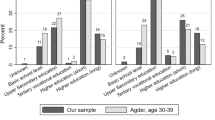Abstract
This research examined the psychological status of Syrian refugee children residing in Antalya, Turkey using the Strengths and Difficulties Questionnaire (SDQ). The psychological aspects explored in the SDQ are emotional symptoms, hyperactivity, conduct disorder, peer relationship problems, and prosocial behavior. We analyzed scores for Syrian refugee children between the ages of 9 and 15 years living in the city center of Antalya, Turkey. For comparison, a similar group of Turkish students completed the same questionnaire. Significant effects of psychological deficit were found for the Syrian refugee children. We conclude that Syrian refugee children in Antalya suffer from severe emotional and conduct problems compared to the Turkish children (who have heightened hyperactivity). Most startling is that both Syrian and Turkish youth in this study have the highest averages for Total Difficulties worldwide, with Syrian refugee children scoring twice as high as their United States counterparts. The results of this study strongly support the need for psychological counseling for refugee children. Additionally, access to counseling should be understood to be critical to refugees’ human right to rehabilitation.
Similar content being viewed by others
References
Alpak, G., Unal, A., Feridun, B., Sagaltici, E., Bez, Y., Altindag, A., Dalkilic, A., & Savas, H. A. (2015). Post-traumatic stress disorder among Syrian refugees in Turkey: A cross-sectional study. International Journal of Psychiatry in Clinical Practice, 19(1), 45–50.
Basheti, I., Qunaibi, E., & Malas, R. (2015). Psychological impact of life as refugees: A pilot study on a Syrian camp in Jordan. Tropical Journal of Pharmaceutical Research, 14(9), 1695–1701.
Boothby, N., Strang, A., & Wessells, M. (Eds.). (2006). A world turned upside down: Social ecological approaches to children in war zones. Bloomfield: Kumarian Press.
Fazel, M., Doll, H., & Stein, A. (2009). A school-based mental health intervention for refugee children: An exploratory study. Clinical Child Psychology and Psychiatry, 14(2), 297–309.
Fernando, C., & Ferrari, M. (Eds.). (2013). Handbook of resilience in children of war. New York: Springer.
Goodman, R., & Scott, S. (2012). Child and adolescent psychiatry (3rd ed.). Chichester: Wiley-Blackwell.
Goodman, R., Meltzer, H., & Bailey, V. (1998). The strengths and difficulties questionnaire: A pilot study on the validity of the self-report version. European Child and Adolescent Psychiatry, 7(3), 125–130.
Heptinstall, E., Sethna, V., & Taylor, E. (2004). PTSD and depression in refugee children: Associations with pre-migration trauma and post-migration stress. European Child & Adolescent Psychiatry, 13(6), 373–380.
Jabbar, S. A., & Zaza, H. I. (2014). Impact of conflict in Syria on Syrian children at the Zaatari refugee camp in Jordan. Early Child Development and Care, 184(9–10), 1507–1530.
Jones, L. (2008). Responding to the needs of children in crisis. International Review of Psychiatry, 20(3), 291–303.
Kline, P. (2000). The handbook of psychological testing (2nd ed.). London: Routledge.
Miller, K., & Rasco, L. (2004). The mental health of refugees. Mahwah: Erlbaum.
Murthy, R. S., & Lakshminarayana, R. (2006). Mental health consequences of war: A brief review of research findings. World Psychiatry, 5(1), 25–30.
Pearn, J. (2003). Children and war. Journal of Paediatrics and Child Health, 39(3), 166–172.
Psychotherapists, G. F. (2015). Psychische Erkrankungen bei Flüchtlingen (Psychological Disorders in Refugees). Berlin: BPtK.
Sirin, S., & Rogers-Sirin, L. (2015). The educational and mental health needs of Syrian refugee children. Washington, DC: Migration Policy Institute.
UNCRC (2002). Optional Protocol to the Convention on the Rights of the Child on the involvement of children in armed conflict, adopted May 25, 2000, G.A. Res. 54/263, Annex I, 54. U.N. GAOR Supp. (No. 49) at 7, U.N. Doc. A/54/49, Vol. III (2000), entered into force February 12, 2002.
UNCRC (2012). Committee on the Rights of the Child Consideration of reports submitted by States parties under article 44 of the Convention Concluding observations: Turkey, 20 of July, 2012.
UNHCR (2017). Global Focus: Turkey. http://reporting.unhcr.org/node/2544?y=2017#year.
UNHCR (2018). Emergency: Syria. Published at: http://www.unhcr.org. Accessed 1 March 2018.
UNICEF. (2013). Syria’s children: A lost generation? Amman: UNICEF.
UNICEF. (2014). Under siege: The devastating impact on children of three years of conflict in Syria. Amman: UNICEF.
UNICEF. (2015). UNICEF Annual Report 2015. Amman: UNICEF.
UNICEF (2017). News note. unicef.org.
War Child Holland. (2013). Psychological support in emergencies: Critical for Syrian children. Amsterdam: War Child Holland.
Wessells, M. G. (2016). Strengths-based community action as a source of resilience for children affected by armed conflict Global Mental Health 3: e1. Published online 2016 Jan 21. https://doi.org/10.1017/gmh.2015.23.
Youth in Mind. (n.d.). London. Website: http://www.youthinmind.com.
Acknowledgements
The authors would like to thank Mina Fazel, Associate Professor at Oxford University, whose advice and suggestions inspired us during the study. We would also like to thank the Youth in Mind group started by Robert Goodman, Professor of Brain and Behavioral Medicine at King’s College, London, for providing instruments and data on psychological health across the world.
Author information
Authors and Affiliations
Corresponding author
Ethics declarations
Declaration of Interest
None.
Ethical Standards
The authors assert that all procedures contributing to this work comply with the ethical standards of the relevant national and institutional committees.
Appendix
Appendix
Strengths and Difficulties Questionnaire
For each item, please mark the box for Not True, Somewhat True or Certainly True. It would help us if you answered all items as best you can even if you are not absolutely certain. Please give your answers on the basis of how things have been for you over the last six months (Youth in Mind, n.d.).

Rights and permissions
About this article
Cite this article
Alsayed, A., Wildes, V.J. Syrian Refugee Children: A Study of Strengths and Difficulties. J. Hum. Rights Soc. Work 3, 81–88 (2018). https://doi.org/10.1007/s41134-018-0057-4
Published:
Issue Date:
DOI: https://doi.org/10.1007/s41134-018-0057-4




